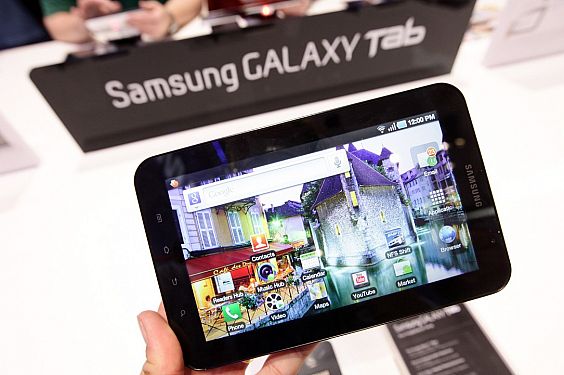Sony launches the WF-1000XM6 in South Africa with upgraded noise cancelling, better call clarity and premium sound. Pricing starts at R7,999.
Samsung Galaxy Tab banned in Germany

In what must seem like a case of sour grapes, Apple has won a landmark lawsuit to ban sales of the Samsung Galaxy tab in Germany. Following a series of lawsuits which stated that the Galaxy had copied the iPad and iPhone, Apple is now forcing Samsung to remove its product from retail stores and tradeshows.
James Chung, spokesperson for Samsung said, “Samsung respects the court’s decision but Apple now severely limits consumer choice in Germany.”
Samsung had egg on its face when it had to withdraw the recently revealed Galaxy Tab 7.7 from the IFA electronics show in Berlin subsequent to the court-ordered product ban. Samsung shares dropped 4.9 percent following the news of the product ban.
Samsung has said that it will pursue all available legal options in order to defend its intellectual property. The two rivals are now at each other’s throats across three continents in countries including the US, Japan, Germany and South Korea.
The amount of Galaxy sales Samsung predicted was close to half a million and with tablet sales estimated at 2.4 million units in Germany alone for 2011, the company will lose out on Europe’s third-largest market – this is according to Strategy Analytics.
Australia was home to one of the the first Samsung bans when the Seoul-based company willingly halted sales of its Galaxy Tab 10.1 until its patent dispute with Apple could be quashed. The reasons for the lawsuit include copying the “look and feel” of the iPhone. A summary of the copyright infringement is as follows:
Rather than innovate and develop its own technology and a unique Samsung style for its smart phone products and computer tablets, Samsung chose to copy Apple’s technology, user interface and innovative style in these infringing products.
Samsung still has an uphill battle to face. Its tablet market share in the first quarter of 2011 was 16 percent, a figure dwarfed by Apple’s overwhelming 69 percent market share. The full lawsuit (in German only) can be read here.


